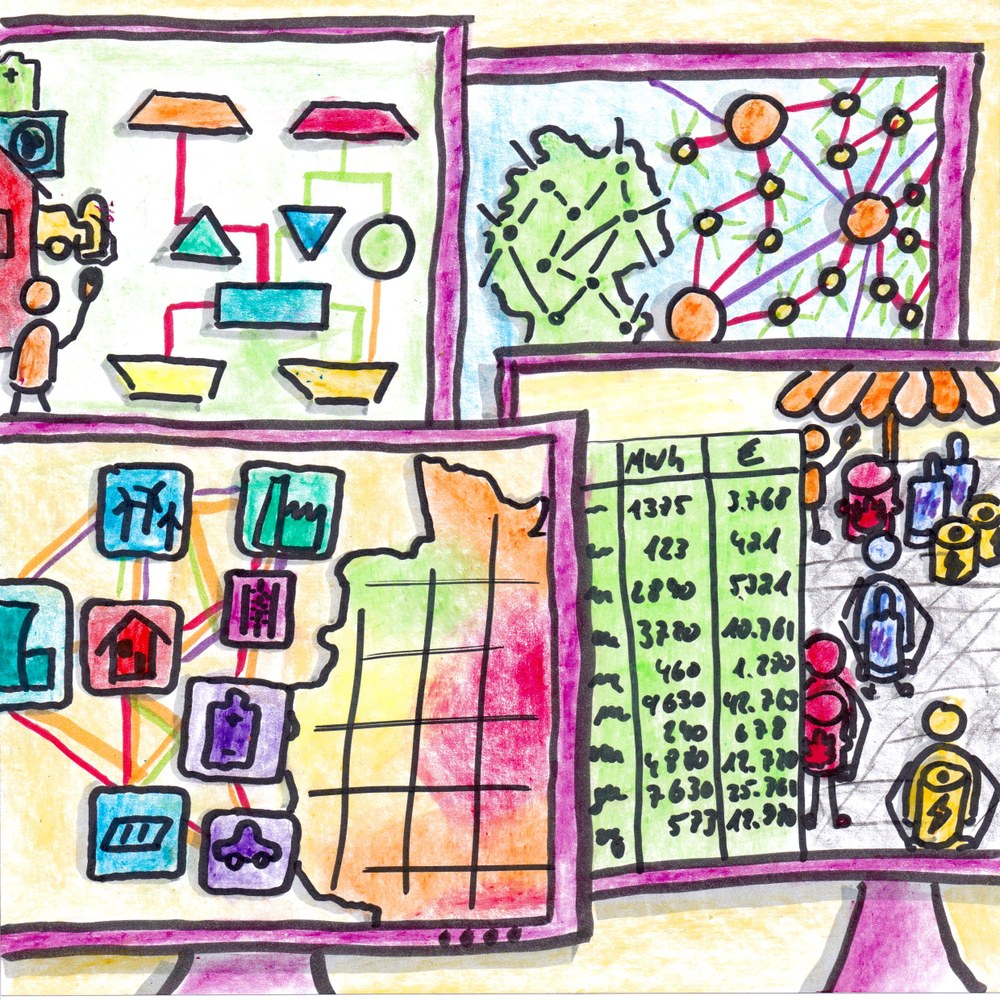Market design and business cases
Agent-based simulation of markets – business scenarios
From an economic perspective, our energy system consists of various energy markets. The design of these markets contains key levers that can be used to constructively shape the transformation process for the further course of energy transition. For example, this mechanism can be used to influence the design of business models for controllable capacities - such as for hydrogen gas turbine power plants. Further market incentives are required, for example, in refinancing renewable energies in wholesale trading or for the use of flexibilities on the generation and consumption side in order to continue to guarantee synchronisation between generation and consumption with the usual stability in the future.

In order to be able to analyse energy scenarios with regard to the business perspective, we operate powerful modelling software for the agent-based simulation of energy markets. It was developed at DLR and published open source in January 2022 under the name AMIRIS ("Agent-based Market Model for the Investigation of Renewable and Integrated Energy Systems").
AMIRIS takes into account the strategic trading behaviour of market participants. A wide range of motivations is mapped, from entrepreneurial self-interest to the assumption of a limited market overview. In this way, the consequences of existing market designs or those under discussion for the future can be analysed realistically. AMIRIS analyse the effects of regulatory framework conditions on the energy system. On this basis, we can provide decision makers with guidance on the impact of pieces of the mosaic in the market design.
In addition to market design, our research activities in third-party funded research, examine the business cases of innovative and new technology solutions that are developed in dialogue with industrial partners. At the heart of this work is the question of how sector integration, energy efficiency and intelligent operational management can turn the often additional investments in sustainable technologies into viable business scenarios. Intelligent plant control and energy management systems can reduce investments and realise considerable energy savings.
We model energy markets in order to support decisionmakers in shaping the regulatory framework and to provide companies with important orientation knowledge for their positioning in future energy markets.
